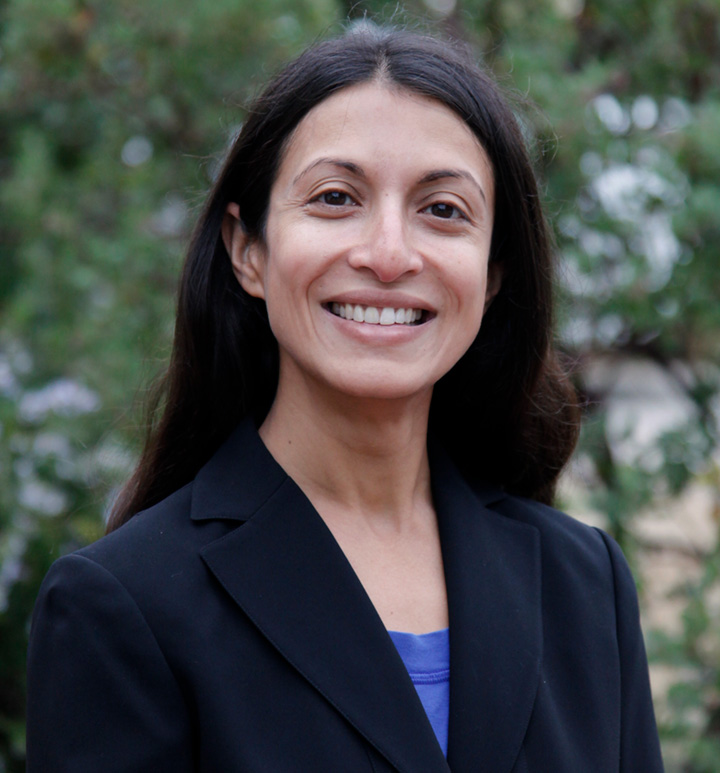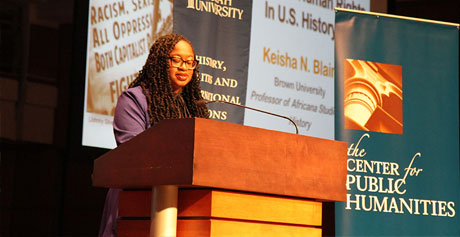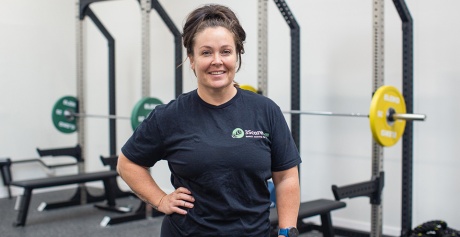Exclusive Interview with Dr. Aparajita Sohoni, Physician Lead, at QT Breasthealth
 Q: Can you explain to our audience the prevention technology behind having a “Radiation Free” experience when testing for Breast Cancer?
Q: Can you explain to our audience the prevention technology behind having a “Radiation Free” experience when testing for Breast Cancer?
AS: QT breasthealth is creating a better experience for women by providing reassurance without radiation. The foundation of that experience is in the QTscan, which allows for painless breast imaging with absolutely no compression, injections or radiation. The technology allows women of all ages to undergo a QTscan and make their breast health the priority it should be. Our goal is to provide an exceptional experience and facilitate innovative medicine and technology that empowers women to be screened earlier – and as often as necessary – in a soothing and risk-free environment.
Q: Tell us how much research has gone into the development of the QT Scan?
AS: In order to get to where QT breasthealth is today with the technology, scores of scientists and doctors contributed efforts and knowledge to advance the cause. In total, this work encompasses over 20 years of research, over 100 publications and approximately $50 million of private funding. In addition, QT Ultrasound was honored to receive $16 million from the National Institutes of Health, which was used to optimize and improve a prototype into the fully-functional scan offered to the public today at QT breasthealth.
Q: Please explain to our audience what is meant when a woman hears of a “False Positive” response?
AS: A “false positive” result in this setting is the term used when a woman is told that her imaging study showed an abnormality – in this case, something that may look concerning for cancer – but upon further review, is then told she does not have cancer. In order to obtain that second look, women have historically had to undergo additional imaging or even a biopsy, which can cause unnecessary patient time, costs and discomfort. That initial study, therefore, turned out to be falsely positive. For everyone woman diagnosed with cancer, there are 19 more who will receive a false positive and have to endure the trauma of believing they have cancer. That’s why I’m so interested in the QTscan – it has the potential to change the way women look at breast health.
Q: With the QT Scan, how long does it take for a patient to receive their results?
AS: Unlike most imaging centers, women who undergo a QTscan will receive their results within 72 hours. As part of my role, I’ll be the one relaying findings to our patients, which will be done in person for our local patients or over video chat or phone for those outside the immediate area.
Q: Your current location is in Novato … will the QT technology become more prevalent in other areas of the Bay Area?
AS: Our state-of-the-art facility in Novato is adjacent to our corporate headquarters. I’m pleased to say that we have plans to expand our reach to other parts of the Bay and Los Gatos areas in the near future.
Q: Since this has been cleared by the FDA … will most insurance companies cover it?
AS: The QTscan is not currently covered by insurance. However, we can assist patients with an HSA with documentation so that they can file a request for reimbursement. While there’s no guarantee that your claim will be reimbursed, we’re happy to help patients with the process. The cost to undergo a QTscan is $600.
Q: Can you give us some statistics about Breast Cancer and what early detection can mean?
AS: Aside from some forms of skin cancer, breast cancer is the most common cancer in women in the U.S., and the most common cause of death from cancer in Hispanic women. It is the second most common cause of death from cancer in African-American, Caucasian, Asian/Pacific Islander and American Indian/Native Alaskan women. In 2018, an estimated 266,120 new cases of invasive breast cancer are expected to be diagnosed in women in the U.S., along with 63,960 new cases of non-invasive breast cancer. The prevalence of breast cancer in women also increases with age, which underscores the importance of early detection and making breast health a priority. Early detection can mean earlier initiation of treatment. Ideally, all cancers would be detected before they have had a chance to metastasize or spread.
Q: Would you recommend the QT Scan for those women who have breast implants?
AS: The QTscan has the ability to visualize the full 360 degrees of breast tissue around an implant. We have active collaborations with breast surgeons and plastic surgeons and request that interested patients discuss our technology with their surgeons to evaluate if QTscan is right for them.
Q: What let to your career path as a Doctor and most important, your passion to prevent Breast Cancer?
AS: It sounds cheesy, but I became a doctor because I wanted to help people. Good health is the most important foundation of our lives. Assisting people in gaining back their sense of health and well-being is something I enjoy doing. In terms of breast cancer prevention, it’s easy to be an advocate for this because of my background as an ER doctor. I am more used to seeing the effects of missed diagnoses, or the course of the disease as it unfolds (through multiple treatments, surgeries, etc.). I often would think, “What if this patient had been detected earlier, or had taken their medications earlier or had never gotten sick?” I do a lot of wishful thinking as an ER doctor, on behalf of my patients, and I wanted to channel that energy into a tool that would be useful for disease prevention.
Q: What would you say is your greatest professional accomplishment thus far?
AS: My greatest professional accomplishment is staying a practicing physician while exploring opportunities within the industry, and still finding time to mentor and educate medical students and residents. This is a new phase of my career, to explore the industry, and it’s something I have always wanted to do.
Q: Which woman inspires you and why?
AS: This one is easy: Michelle Obama. She is such a good example of a strong female leader; someone who took on a cause made it her own and was able to get others to rally around it for the betterment of our people.
Q: What are some of the challenges you feel women face today?
AS: Balancing family life and work, while reconciling ambition with guilt for missing out on home life, kids’ moments, etc. Being present in leadership, whether in your group or department, is another challenge women face. Another that I know impacts many women are acknowledging that it’s OK to take time for yourself.
Q: Do you have any advice you can share for those women who may want to pursue a career as a Doctor?
AS: My biggest advice is to shadow as many physicians as you can, and not ones who have just finished med school or residency! Find physicians across a broad range of specialties who have been doing this for 10, 20, 30 years. See if they love what they do, how they have found a work-life balance, would they do it all again and how they made it work. If you could be them, would you want to be?
Q: Can you tell us how you manage your work life balance?
AS: I feel very fortunate to have a fantastic husband and incredibly supportive parents and mother-in-law, not to mention sisters, sisters-in-law and brother-in-law who always pitch in. Our nanny is steady as a rock, and I rely on her 100 percent. Our circle of friends is also almost all couples with kids where both parents are working. We see a lot of different approaches to trying to find work-life balance. I don’t think anyone has it figured out, but we’re all trying together!
Five Things About Dr. Sohoni
1. If you could talk to one famous person past or present, who would it be and why?
Michelle Obama
2. Is there an app you can’t live without?
Gmail
3. What are some of your favorite interests and hobbies that you enjoy?
Working out, cooking, spending time with friends
4. What place have you always dreamed of visiting?
New Zealand
5. What’s the best advice anyone’s ever given you?
Don’t be afraid to shut the door on something. You don’t know what other opportunities will come along.

